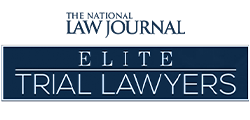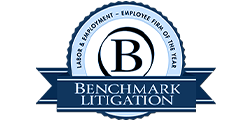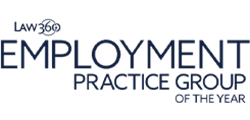Qui Tam and Whistleblowers Attorney
Representing Whistleblowers Nationwide
Sanford Heisler Sharp has represented whistleblowers in recovering billions of dollars for the U.S. Government and a number of state governments under a variety of statutes and programs. Without a whistleblower, the Government often cannot find and understand the necessary evidence to prosecute fraudulent and deceptive practices by banks and corporations. In order to be successful, the government and whistleblowers need the support and assistance of experienced counsel to navigate the modern corporate environment – where critical data are maintained in a cloud and hidden by algorithms and proprietary software often designed by the corporation itself.
On This Page
The Importance of Whistleblowers
The U.S. Government recognizes the critical role that whistleblowers play in corporate governance by offering substantial awards to whistleblowers who provide information that results in a judgment or successful settlement from a corporate wrongdoer. The Government first incentivized whistleblowers to help battle procurement fraud with the False Claims Act (FCA), under which the Government has recovered over $64 billion.
What is the False Claims Act?
The FCA was enacted in 1863 during the Lincoln administration in an effort to protect the government and Union Army during the Civil War from some suppliers’ fraudulent practices. After being weakened by amendments in 1943, the FCA in 1986 again became a powerful tool to combat fraud against the government.
A private citizen who has material information about a person or an organization defrauding a governmental entity and who files a lawsuit against this person or organization under the False Claims Act is commonly named a relator or whistleblower, and the lawsuit is often called a qui tam lawsuit or qui tam action. Qui tam is a shorthand for qui tam pro domino rege quam pro si ipso in hac parte sequitur, a Latin phrase that means “[he] who sues on behalf of the king as well as for himself.” Qui tam provisions originated in England during the Middle Ages and led to the development of the FCA.
Whistleblower Programs
Following the success of the FCA, Congress initiated several other whistleblower programs:
- Financial Institutions, Reform, Recovery and Enforcement Act (FIRREA) (1989)
- IRS Whistleblower (2006)
- Commodity Futures Trading Commission (CFTC) (2009)
- Dodd-Frank SEC Whistleblower Program (2010)
- Anti-Money Laundering Act (2020)
Many states and some larger municipalities also have their own whistleblower programs.
Common Industries Involved in Fraud Cases
According to most estimates, over 95% of the dollars lost to fraud and mismanagement are lost forever. The Government is actively seeking assistance from whistleblowers to catch these wrongdoers in several areas:
- Securities fraud involving pre- and post-IPO tech and social media companies. This includes companies that mislead investors about their value or growth, and companies that “fake it till they make it.”
- Digital advertising fraud, including deceptive practices associated with fake clicks and bots. This also includes the practice of manipulating algorithms to charge higher than advertised prices and omitting material consequences resulting from certain algorithms.
- Cyber security violations, including those by companies and government contractors that do not follow industry standards and FedRAMP to protect the privacy of critical data.
- Healthcare fraud, including overcharging and overbilling in connection with Medicare/Medicaid, and kickbacks.
- Procurement fraud, including defective and unsafe products, over-billing, violations of the Best Price Clause, and the minority set-aside program.
Successfully Protecting Whistleblowers from Retaliation
At Sanford Heisler Sharp we can help you blow the whistle and work to protect you from retaliation, just as we did when:
- Our client helped several government agencies, including the OCC, SEC and DOJ, from 2016–2020 to recover $3.5 billion in fines and penalties from Wells Fargo arising out of the “fake account” scandal. So far, his awards include the highest possible award under the FIRREA program.
- Our client alleged that Navistar, a defense contractor, misrepresented its pricing structure to the DOD and overcharged the Government in the MRAP vehicle purchase. Navistar paid $50 million to settle this case in 2020.
- Our client alleged that CDM Smith developed an automated process to conduct an audit that dramatically cut the man-hours necessary to complete the job, but continued to charge the Government as if the work was still being performed manually. CDM Smith paid $5.65 million to resolve these allegations.
- Our client alleged that NetApp failed to obey the “Best Price Clause,” required by GSA contractors to give the Government favorable pricing, and overcharged the Government by millions. NetApp paid $128 million to resolve these allegations.
- Our client alleged that Tenet engaged in a practice of ordering unnecessary medical tests for patients, knowing that the Government will only pay for reasonable and necessary medical expenses. Tenet settled these claims for $1.4 million.
Our Whistleblower & Qui Tam Practice Group is led by Vince McKnight and John McKnight, who have 25 years and 10 years respectively representing whistleblowers. Vince also serves on the Board of Taxpayers Against Fraud. Contact our experienced attorneys today to allow us to help you file your whistleblower claims and help combat fraud against the government and, ultimately, taxpayers.




